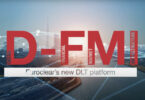HSBlox announced a partnership with the blockchain enterprise firm R3 to form the Corda Healthcare Community blockchain initiative.
The Community will use R3’s Corda platform and aims to be a focal point for firms interested in using or exploring healthcare apps on blockchains.
Corda’s private transaction capabilities could help assuage any potential privacy concerns. Compared to public blockchains with all transaction data seen by everyone, Corda allows transaction details to only be seen by those involved and any potentially consented third-party.
David E. Rutter, CEO of R3, commented on the Community project: “There is no doubt that blockchain could create significant efficiencies in today’s healthcare systems and Corda’s privacy design makes it the ideal platform for healthcare applications.
“Our partnership with HSBlox to launch the Corda Healthcare Community will help deliver a new level of security, transparency, and efficiency for the healthcare industry. We look forward to working with them and our partners on this initiative.”
This HSBlox arrangement is not dissimilar to R3’s relationship with TradeIX in Trade Credit. In that case, TradeIX helps banks in the Marco Polo consortium to integrate their systems.
Apart from various other healthcare players joining the Healthcare Community, other partners also include Hewlett Packard Enterprise (HPE).
Healthcare blockchain benefits
Appetite for blockchain in the healthcare industry is not expected to stagnate. BIS research predicts that 70% of healthcare organizations will invest in on-boarding the technology by 2020.
Furthermore, blockchain adoption could potentially save the industry $100-$250 billion globally per year by 2025.
Prior HSBlox relationship
HSBlox previously worked closely with R3 on its patent-pending RevBlox™ application. They announced the Corda based app back in March of this year. RevBlox™ aims to increase the speed and transparency of healthcare insurance payouts by using machine learning and distributed ledger technologies.
“As healthcare stakeholders seek real-time information that integrates patients, providers and caregivers, we see Corda as the optimal platform for deployment of smart contracts as part of our workflow solutions,” says Rahul Sharma, CEO of HSBlox.
HSBlox products
HSBlox announced two other products this month. One is an Advance Referral Management (ARM) solution. Consider if you visit a general practitioner who refers you to a specialist. As a result, medical details need sharing, the specialist needs to know about tests already performed, and appointments require coordinating. The ARM system enables this information to be shared using distributed ledger technology.
The other new system deals with patient identification. In the US there is no national patient id number. One can only imagine the medical errors that can happen if a patient’s identity is mistaken. Plus HSBlox says that in 33 percent of denied medical claims, the cause is mistaken patient identity.
So they’ve introduced an Enterprise-wide Master Patient Index (EMPI) that uses machine learning. This enables duplicate records to be merged, or where two patient records have been mixed up, to separate them.
HSBlox’s CEO has a strong track record. He already has a blockchain exit, given he sold a Proxy voting system to Broadridge Financial. Before that, he was CTO at Inveshare which sold its technology assets to Broadridge for $135m. Prior to that, he was CTO at Decipher which deals with inventory for the healthcare sector.
It appears that the healthcare sector may adopt blockchain a little slower compared to other industries. But the potential benefits and upside are enormous.







